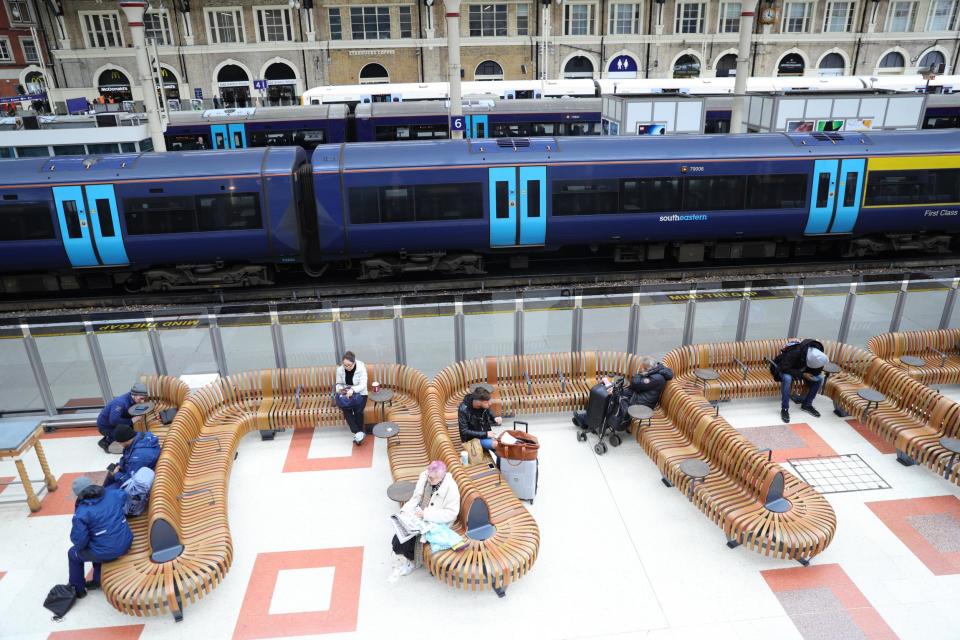20 Pledges for 2020: Will train travel be a viable option in the post-coronavirus world?

It’s been a long time since I had travel FOMO. Not since starting this column in January charting my flight-free adventures, in fact.
Initially because I was taking my first tentative steps into a world filled with the infinite possibilities of rail travel. Then because a global pandemic came along and put paid to virtually all travel, no matter the medium. There’s something curiously comforting about knowing for a fact that no one is having a better time than you.
As lockdown measures gradually eased, I evolved a whole new understanding of travel – I realised for perhaps the first time that you don’t need to go very far at all to discover something new. I felt incredibly zen about the fact I hadn’t ventured out of London, let alone the UK, in months.
That is, until I started to see the social media posts of fellow travel journalists. Tweets started popping up aggressively on my timeline, tweets with pictures of boarding passes and passports and empty airport terminals. “Haven’t used this bad boy in a while!” would read the caption, alongside a photo of a long-neglected travel document. And my throat would start to choke up with the thick, green bile of jealousy (at least I hope that’s what it was).
The 10 July was a big day for the world of travel, though you might have missed it, such was the confusion caused by all the conflicting government advice. I will break it down for you as best I can: it was the day the much talked-of “travel corridors” came into play, meaning that those travelling back to the UK from certain “low risk” countries could forgo the blanket two-week quarantine previously imposed on all arrivals.
Hurray and huzzah, cried holidaymakers across the land! Of course, this being a land guided by one of the most shambolic governments in living memory, it wasn’t quite that straightforward: Scotland’s list was slightly different from that of England, Wales and Northern Ireland (missing off Spain and Serbia); the Foreign Office (FCO) had already issued its own list of countries where the previous warning against all non-essential travel has been lifted, and the two did not match up; and even if a country was listed on both the quarantine-exempt and FCO lists, there was no guarantee they were welcoming back Brits with open arms.
Yes, the term “travel corridor” implies some kind of reciprocity. But there is none. I mean, it’s great to know that both the FCO and Department for Transport think it’s safe to go to New Zealand, but good luck getting in. Other countries on the list still have their own two-week quarantines in place for UK travellers on arrival, which slightly takes the shine off a trip.
Regardless, even with all the confusion, if you wade through the mire there is a robust list of destinations where you can now feasibly go on holiday – Amsterdam, Provence, Ibiza – and my peers and colleagues were taking full advantage.
The thing is, when you’ve given up flying, it’s not quite that simple. Gosh, I’d simply love to join two trips I’ve been invited on in the next week to Spain’s Balearic Islands – but, funnily enough, offering a train/boat transport option is not currently a priority for cash-strapped tour operators.
While airlines have started ramping up their summer schedules, Eurostar has pared its list of routes to the bone. Marseille is currently no more (a fabulous way of getting to the south of France without setting foot on a plane); and the train operator announced that it is running no ski trains for the 2020/21 winter season.
“This is a decision we’ve made with a great deal of sadness,” reads an email to customers. “It’s been an absolute pleasure to take thousands of travellers direct from St Pancras to the Alps over the years. But in the wake of the coronavirus and a challenging travel market, we’ve had to make some changes to our services, focusing on our main routes with the highest demand.”
My heart fell when I read those words. I’d been so looking forward to catching my first ever ski train before the year was out, proving that getting to the Alps without flying is totally doable. It made me wonder what other flight-free travel options might end up on the cutting room floor in the coming global recession.
It coincides with a strategy in the UK that has seen rail travel successfully positioned as something dangerous and untenable – an absolute last resort that should be avoided at all costs. “Take the car”, is the prevailing message, undoing years of good work encouraging people to opt for public transport instead in response to the climate crisis.
For someone like me who can neither drive nor owns a car, it makes even domestic holidaying this summer seem like a distant dream. Will the rest of the world follow suit? Will public transport become the last port of call for safety-conscious travellers post-pandemic?
At this crucial point in our history, where we might actually have the chance to rebuild a greener, more sustainable world in the wake of coronavirus-collapse, I can only hope we don’t end up making the greener choice the harder choice.
Read more
Why I've pledged to go flight-free for a year

 Yahoo News
Yahoo News 